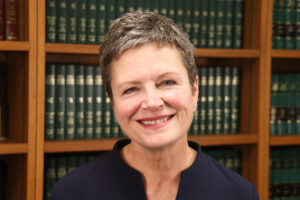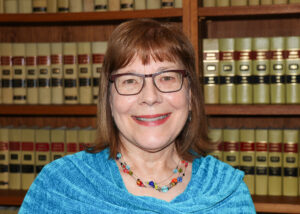Kansas Courts and the Rule of Law
About this Collection
The role of the Kansas Courts is to guarantee the “rule of law” to every citizen, regardless of wealth or position of power. The decision-making of the appellate courts is seen only through written opinions. Interviews with former Supreme Court Justices, judges and others involved in the court system will illuminate this indispensable and often misunderstood part of the policy process. Interviews of other legislators who chaired the House and Senate Judiciary committees can be found in Statehouse Conversations.

Interview of Carol Beier, November 23, 2022
Interviewed by Richard Ross
Beier's interview explained how the judicial branch of government operates, showing how cases get to the Supreme Court and that the justices can only consider facts framed by the parties and their counsel. They don't "Google" for extra facts. They stay in the bounds of the facts as framed by the case. Beier is also an advocate for merit selection of judges and makes the case that merit selection is the most appropriate method. She gave examples of how retention elections operate. She told a story about a friend living in New York Show MoreCity who asked the question, "What do people do in Kansas?" The answer was "Everything important in life." Beier connected that response to her conclusion: A strong, healthy, supported Judiciary that understands it role and performs it well is part of "everything important in life."
Highlights -- short excerpts from the interview
















